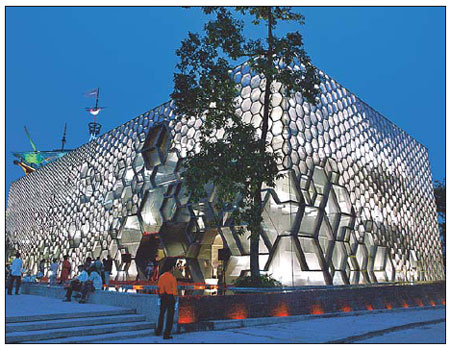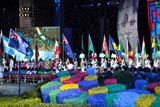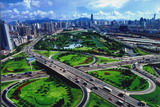
Art designed for the masses
Updated: 2011-06-29 18:11
By Shi Yingying (chinadaily.com.cn)
 |
|
The OCT Art & Design Gallery in Shenzhen. |
The three-story OCT Art & Design Gallery in Shenzhen, Guangdong province, which was a five-star hotel's laundry space just three years ago, is now hosting more than 30 artists' design works.
"Our gallery is open to all hotel guests for free while outsiders are charged 15 yuan ($2.3)," the gallery's media officer Li Xiaonan says, adding that it's less than 50 meters from InterContinental Shenzhen.
The hotel is owned by Shenzhen-based tourism and real estate developer, Overseas Chinese Town (OCT).
"We don't do art sales or auctions," Li says. "If museum-goers show an interest in a piece of art and want to take it home, we only introduce the artists to them."
Located a stone's throw away is the OCT Contemporary Art Terminal, sitting quietly in the heart of the city's creative industry zone, Loft.
The warehouse-turned-museum hosts anything related to avant-garde art, including the Shenzhen Biennial.
"If we use this land to build houses, it can easily sell for as much as 40,000 yuan per square meter," Huang Yingyan, general manager of the Loft, says, emphasizing the gallery's prime location.
Explaining the reasons behind the gallery's opening, OCT spokesman Guan Shan says: "Shenzhen was dubbed a 'cultural desert' before we came, and we're doing what we should - planting trees one by one in this 'desert'."
He says the OCT Art & Design Gallery, with its focus on design, will complement the OCT Contemporary Art Terminal and its contributions to experimental arts. It will do the same for the He Xiangning Art Museum, which is devoted to feminine arts.
"We won't stop here, and will bring more art galleries and museums to Beijing, Shanghai, Chengdu and Wuhan, where OCT has properties," he says.
Li points out the development of a creative arts zone has raised real estate prices in this area.
Reflecting on the emerging trend of building an art zone around residential areas, Yvonne Zhang, a Shanghai-based art critic, says, "Some big shopping malls in Shanghai have started holding free exhibitions to quench shoppers' thirst for art, while also keeping them in the mall longer," she says.
"The same thing applies to museums built next to residences."
Video

Working as a Universiade volunteer

Party starts as Universiade ends

Sumptuous seafood in Shenzhen

Athletes test doping knowledge
About Shenzhen
